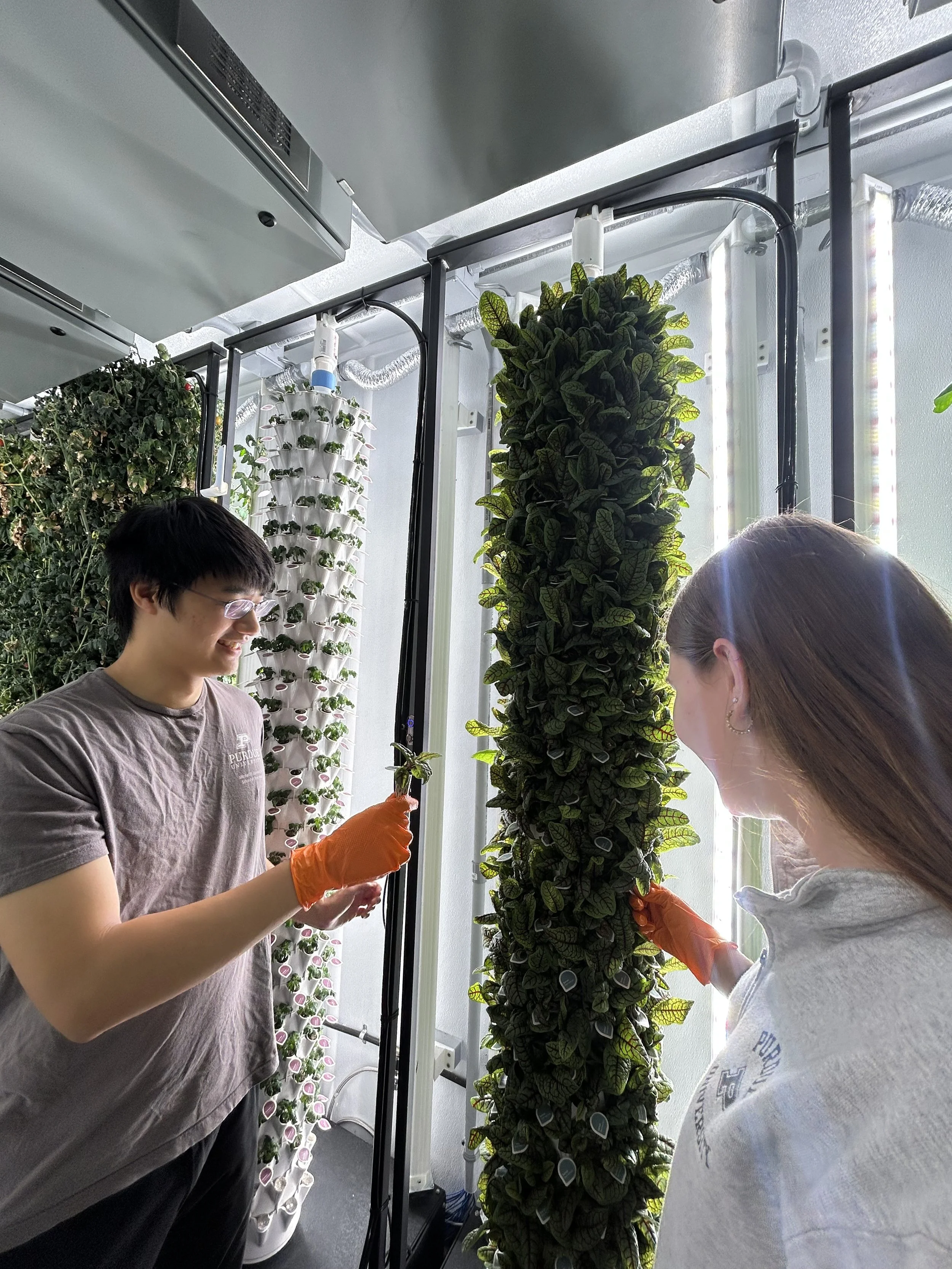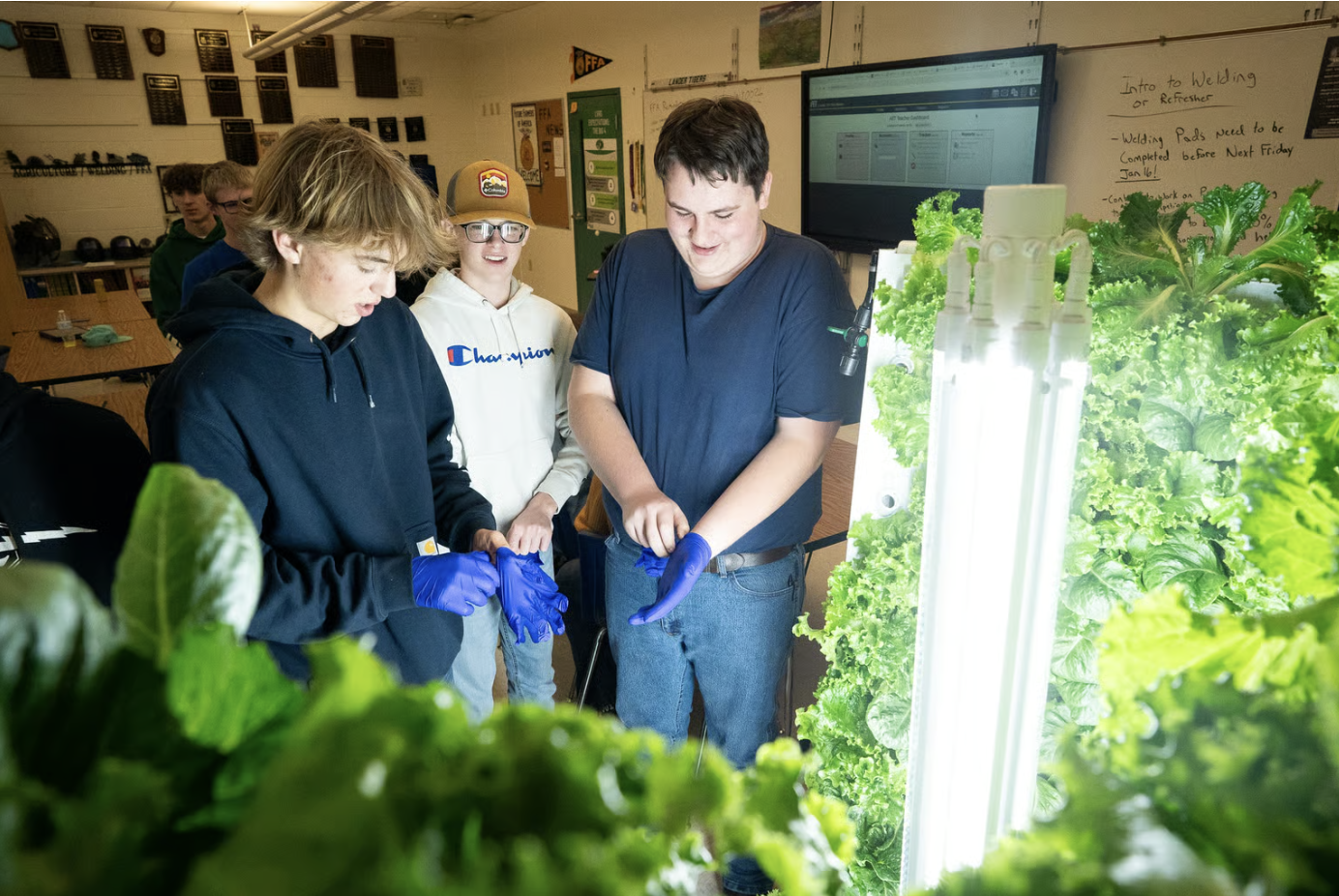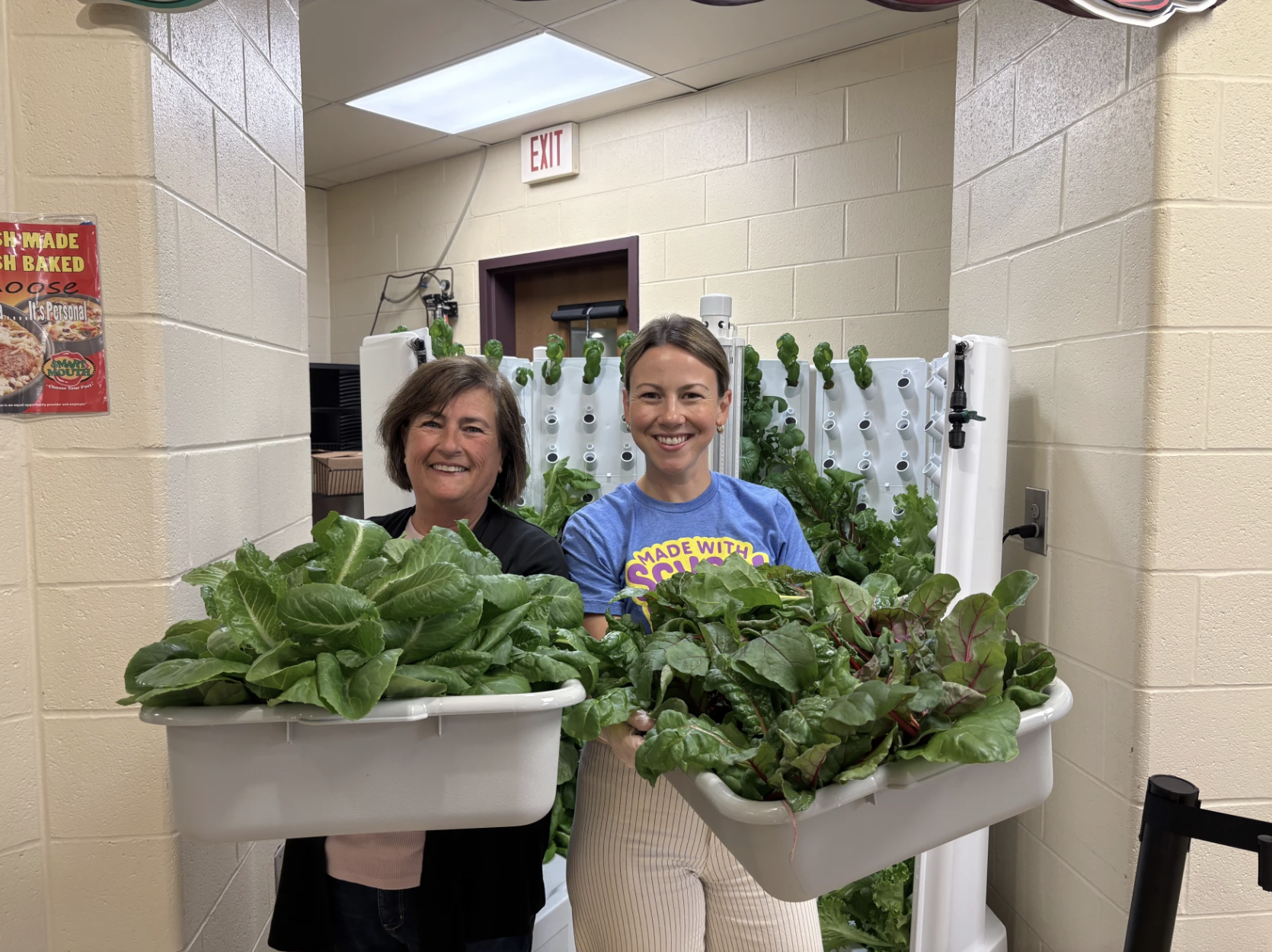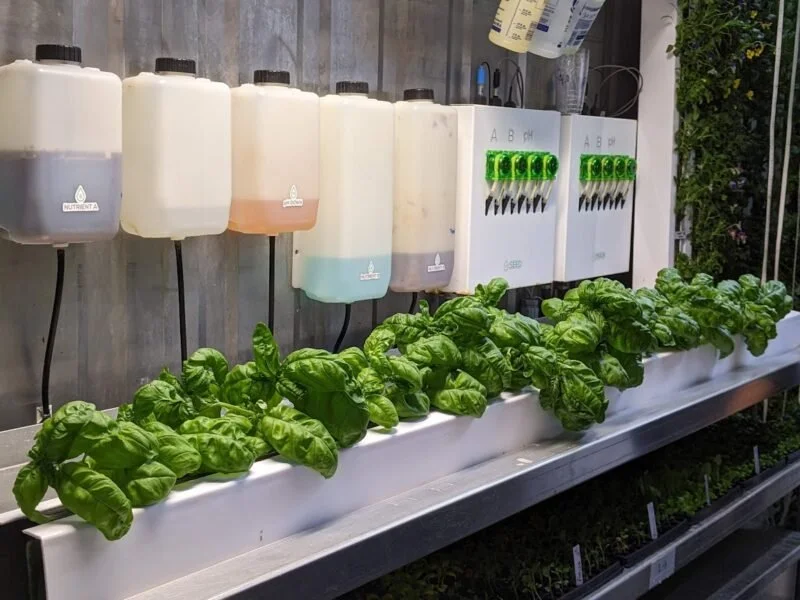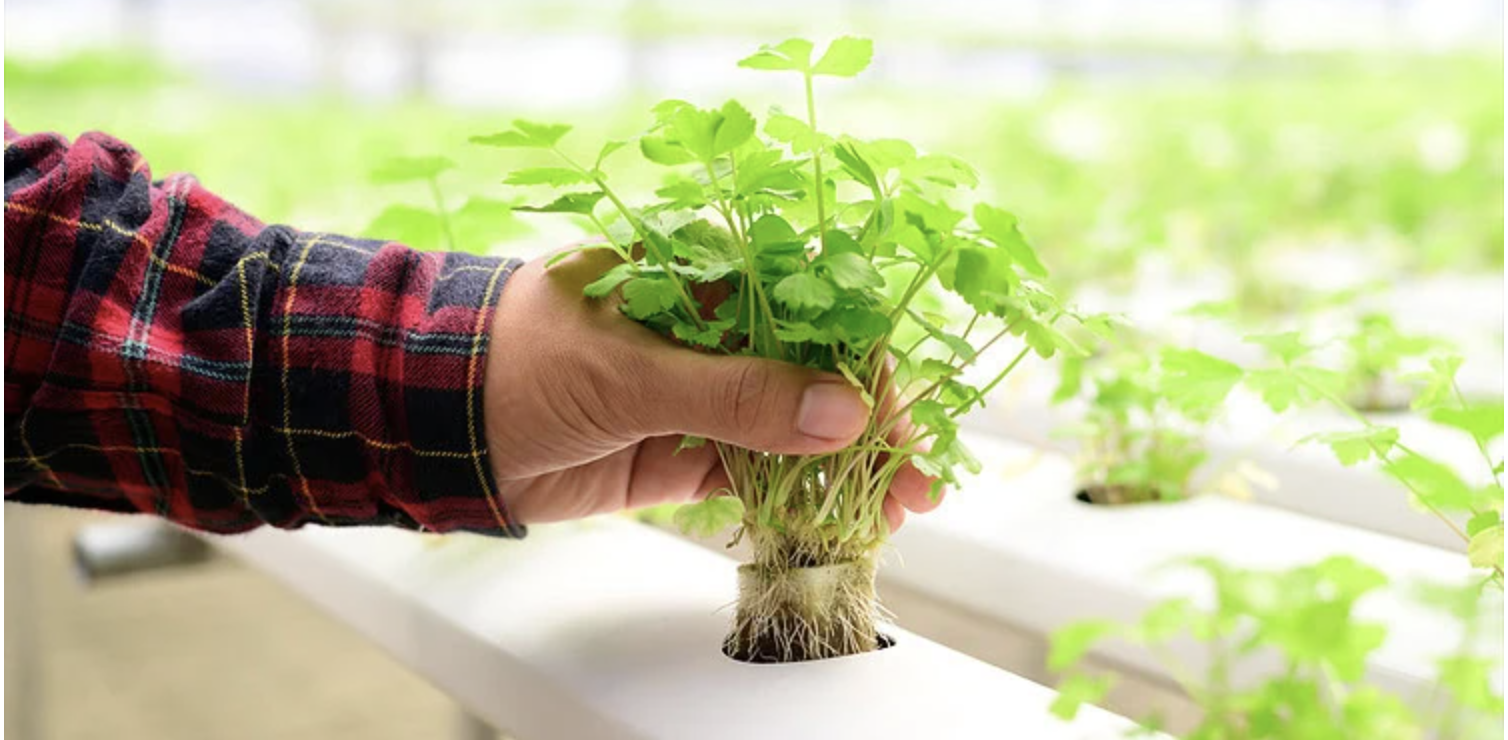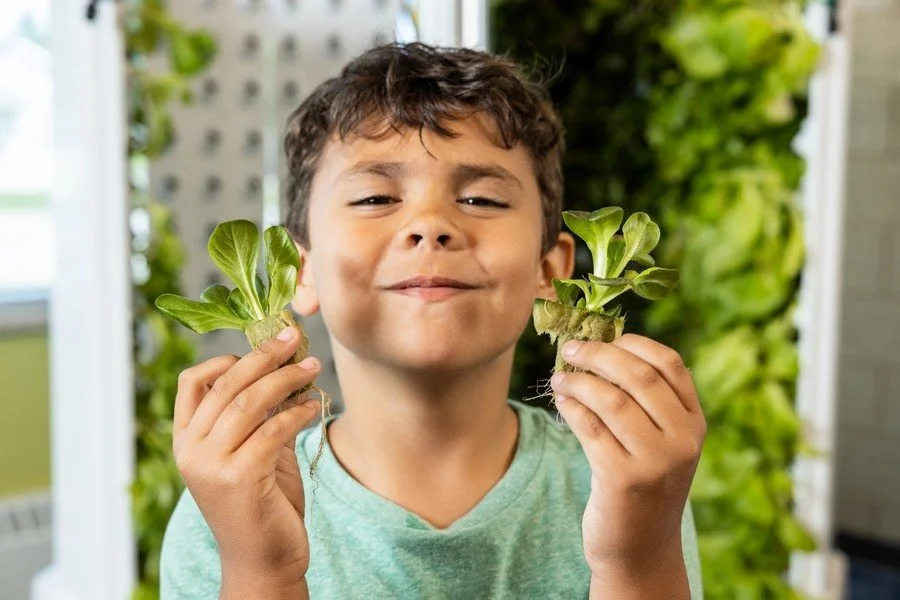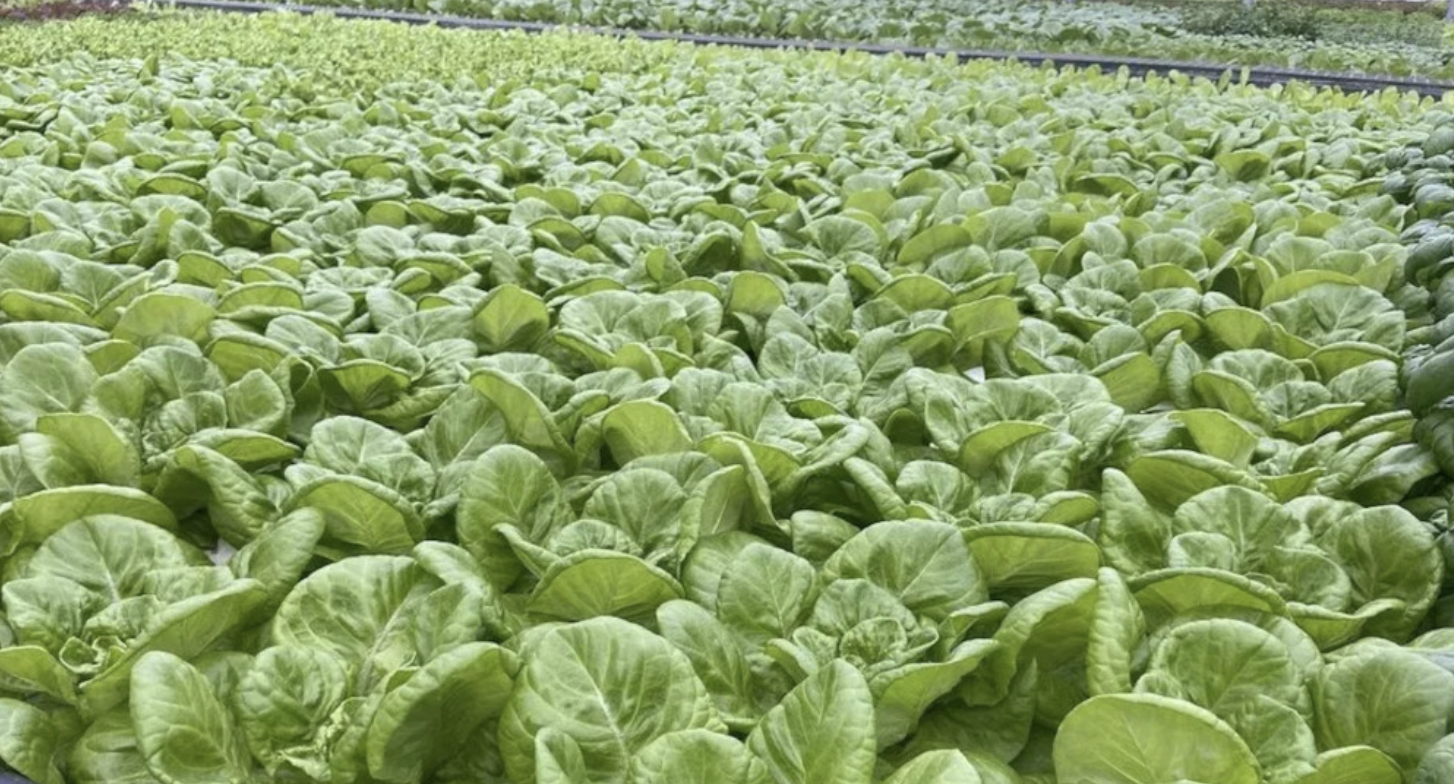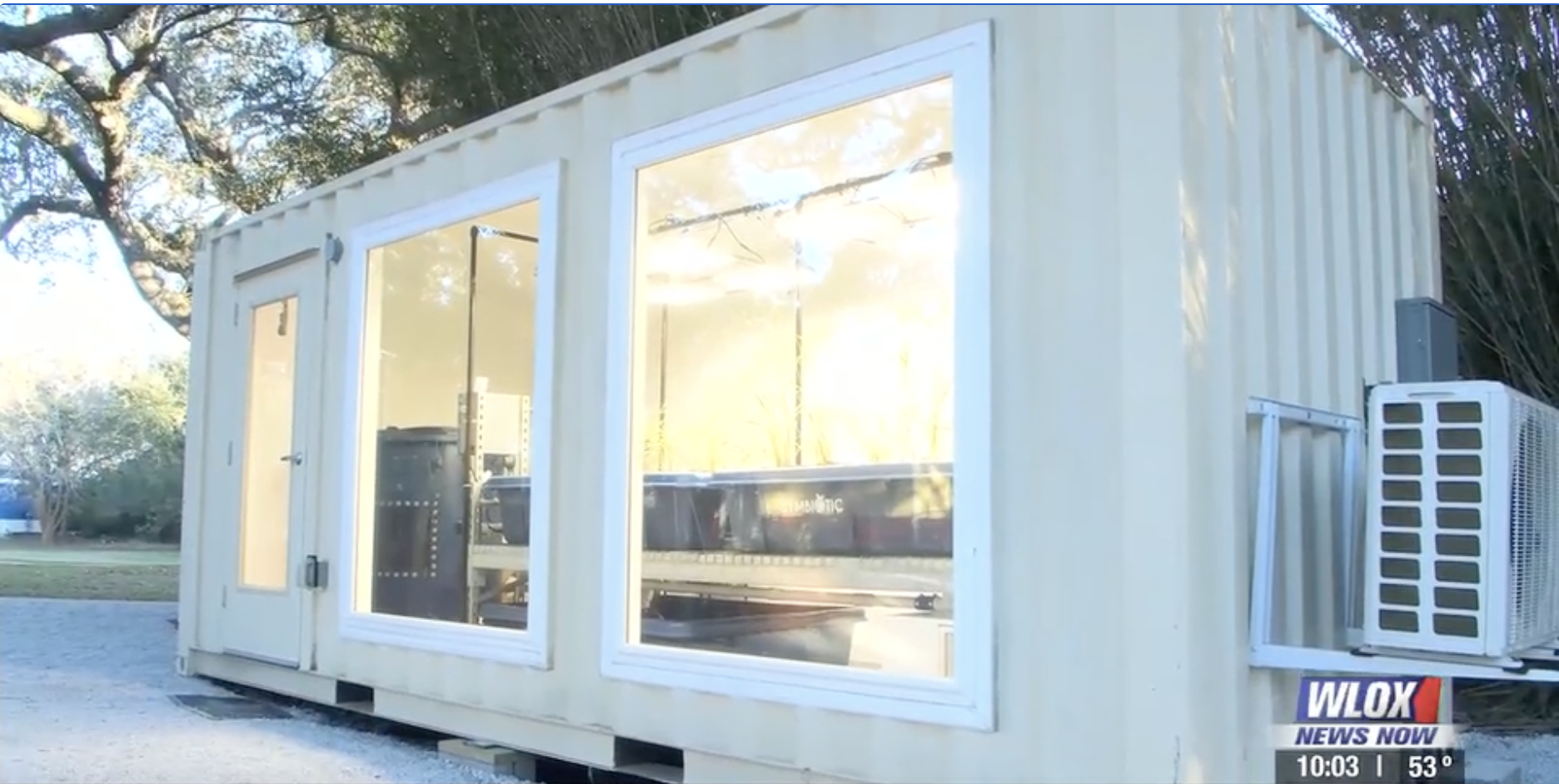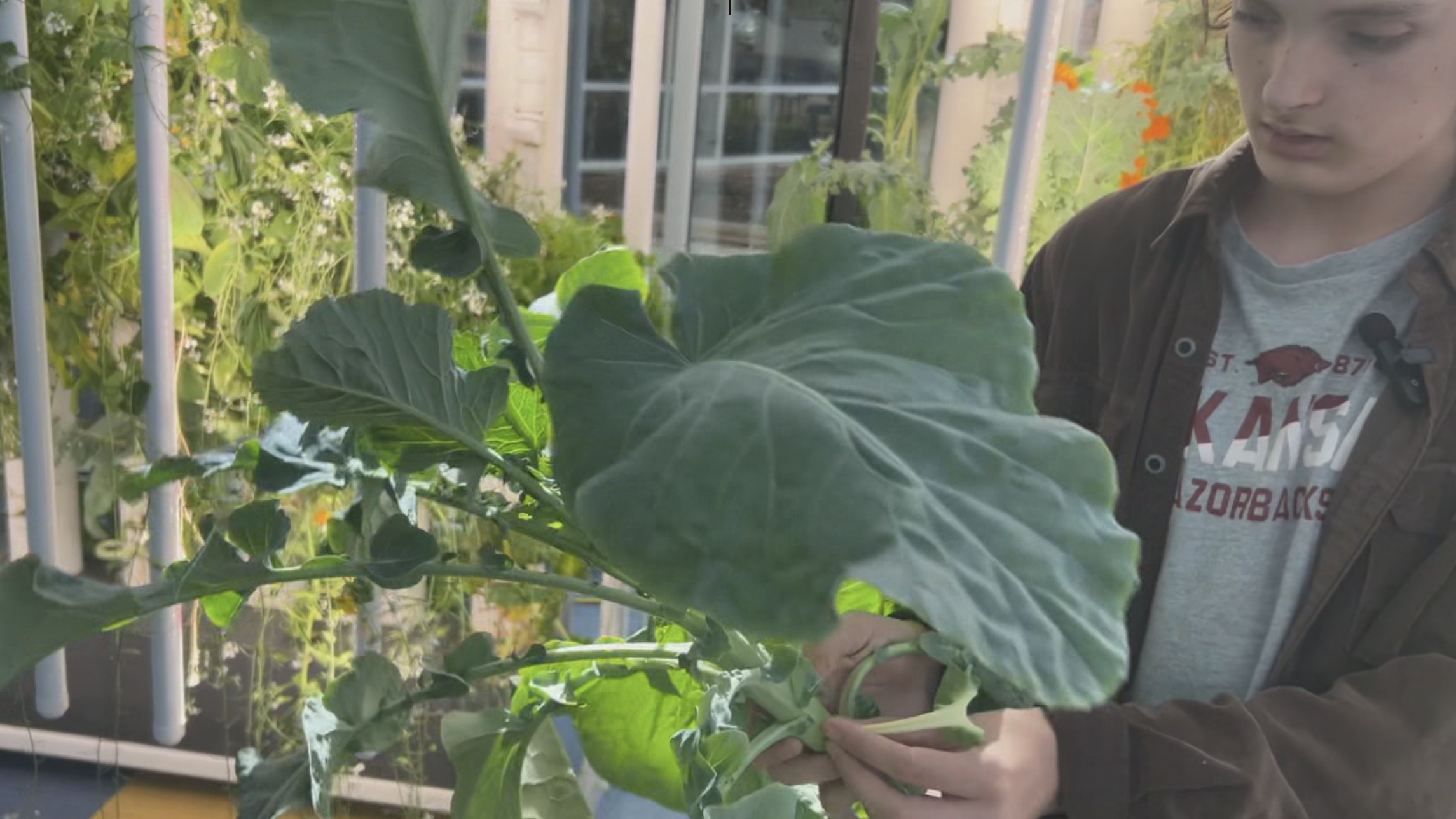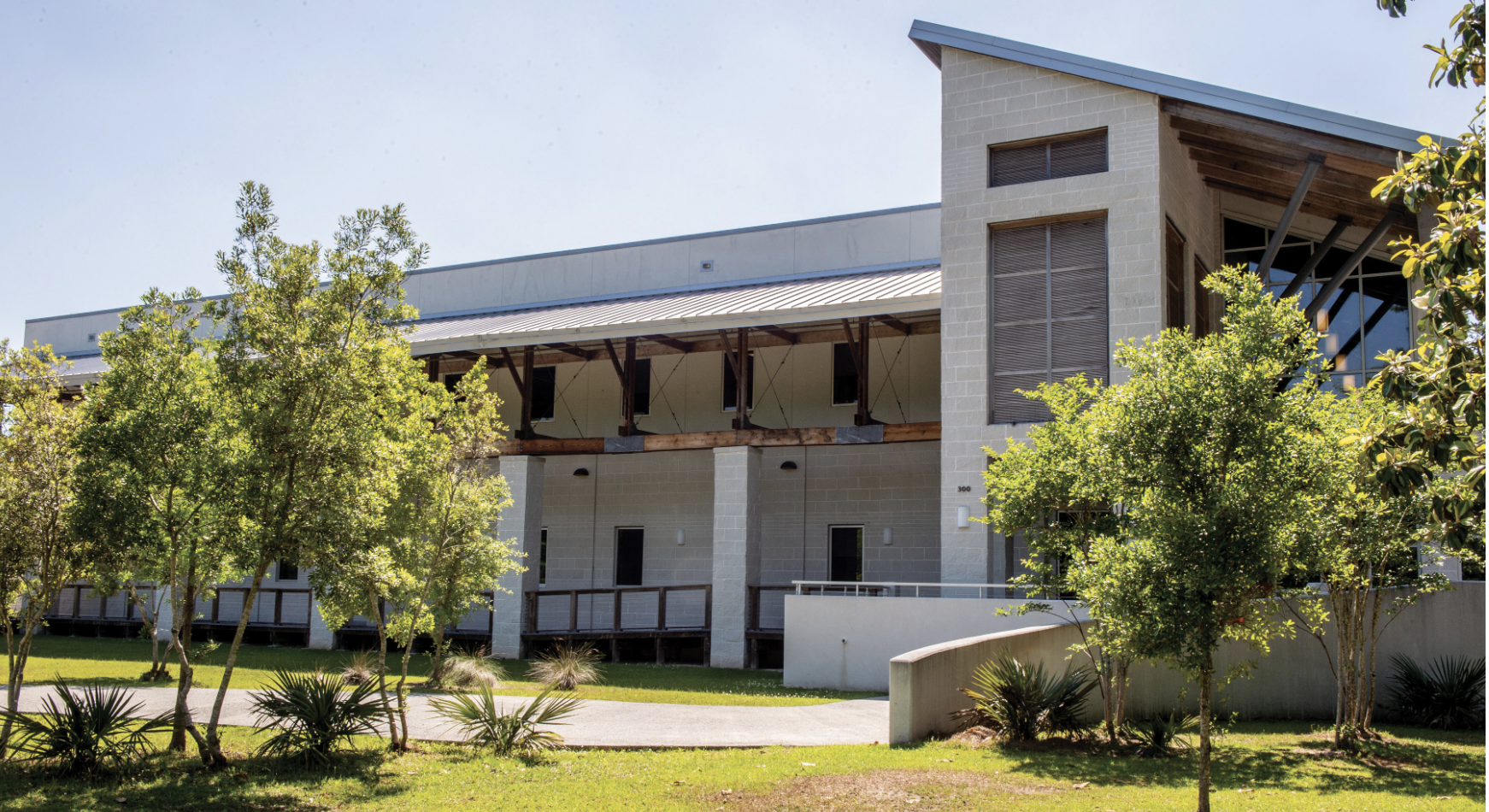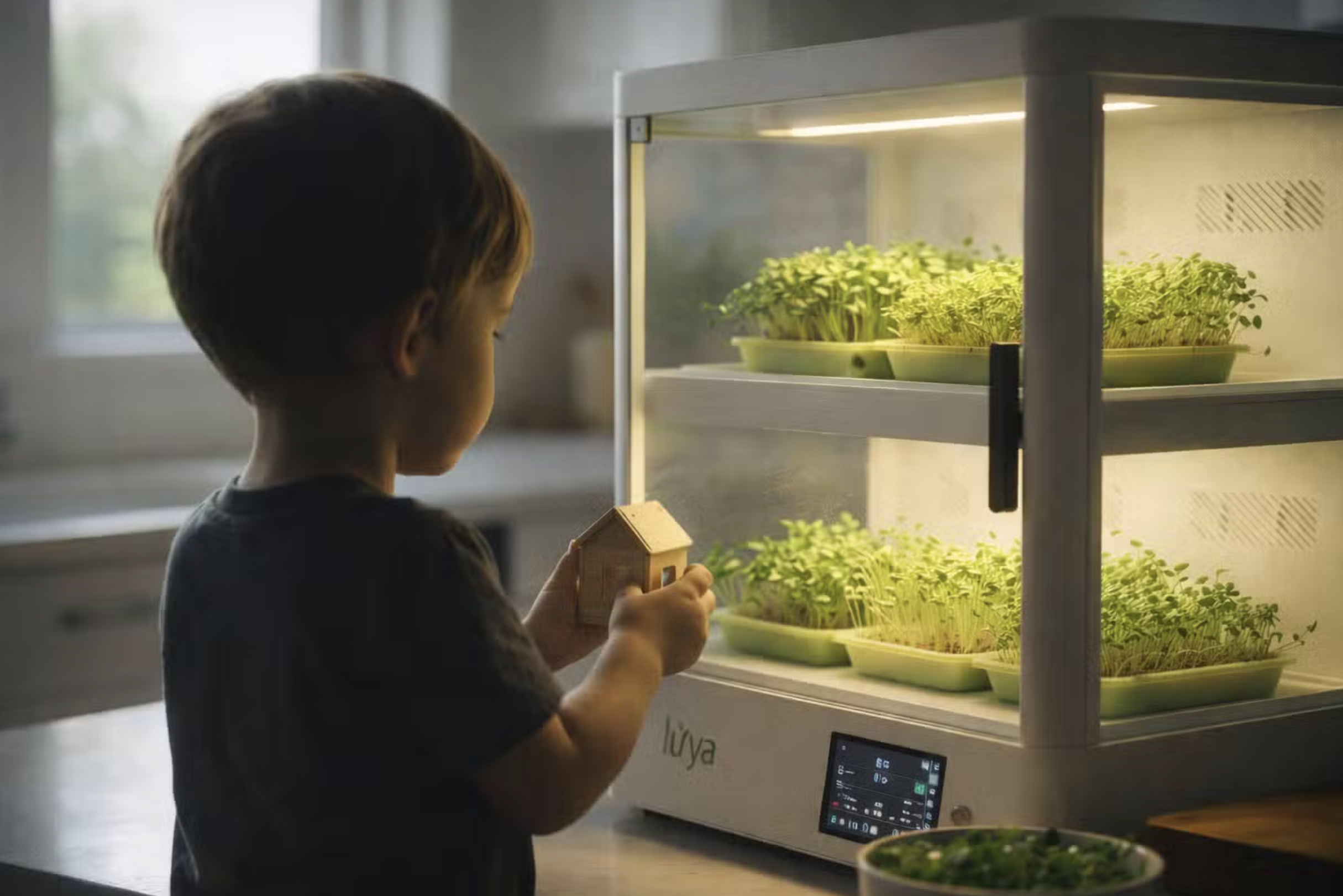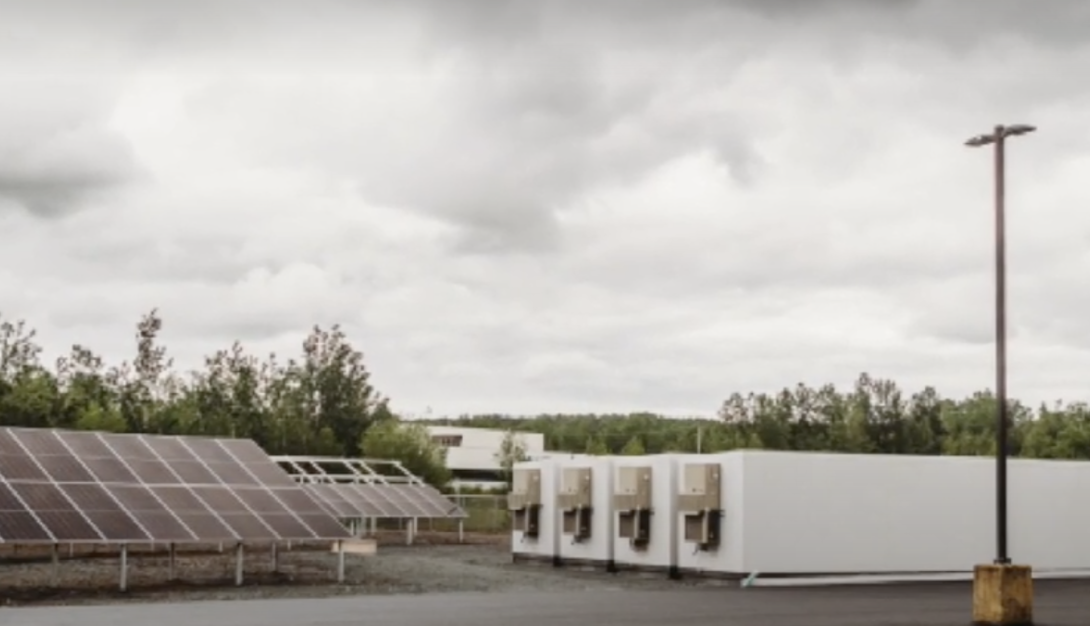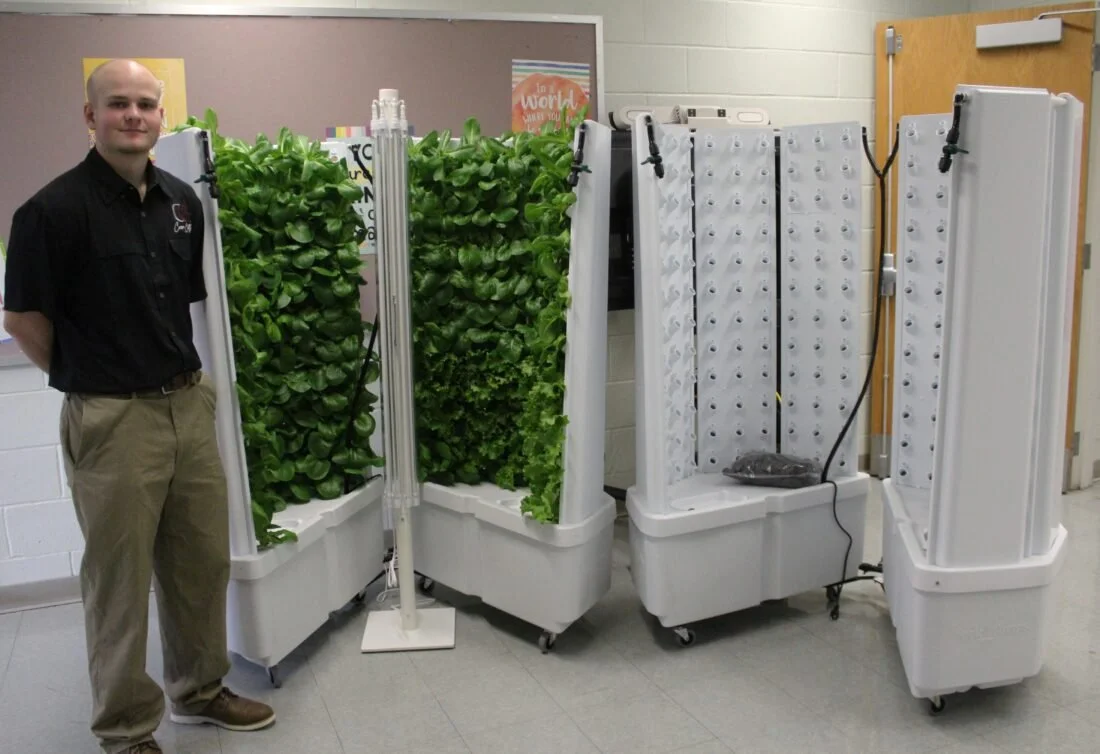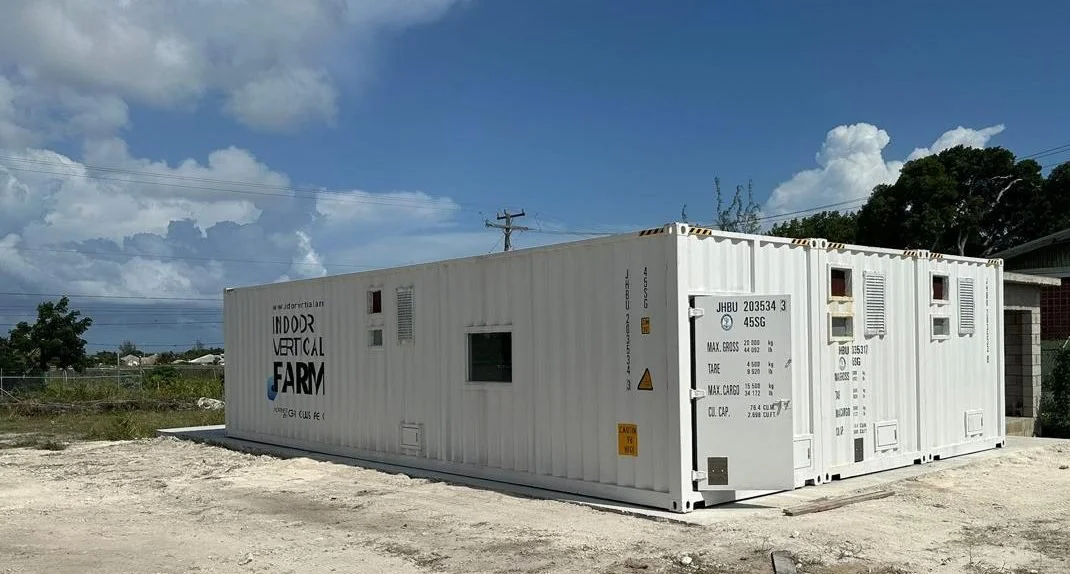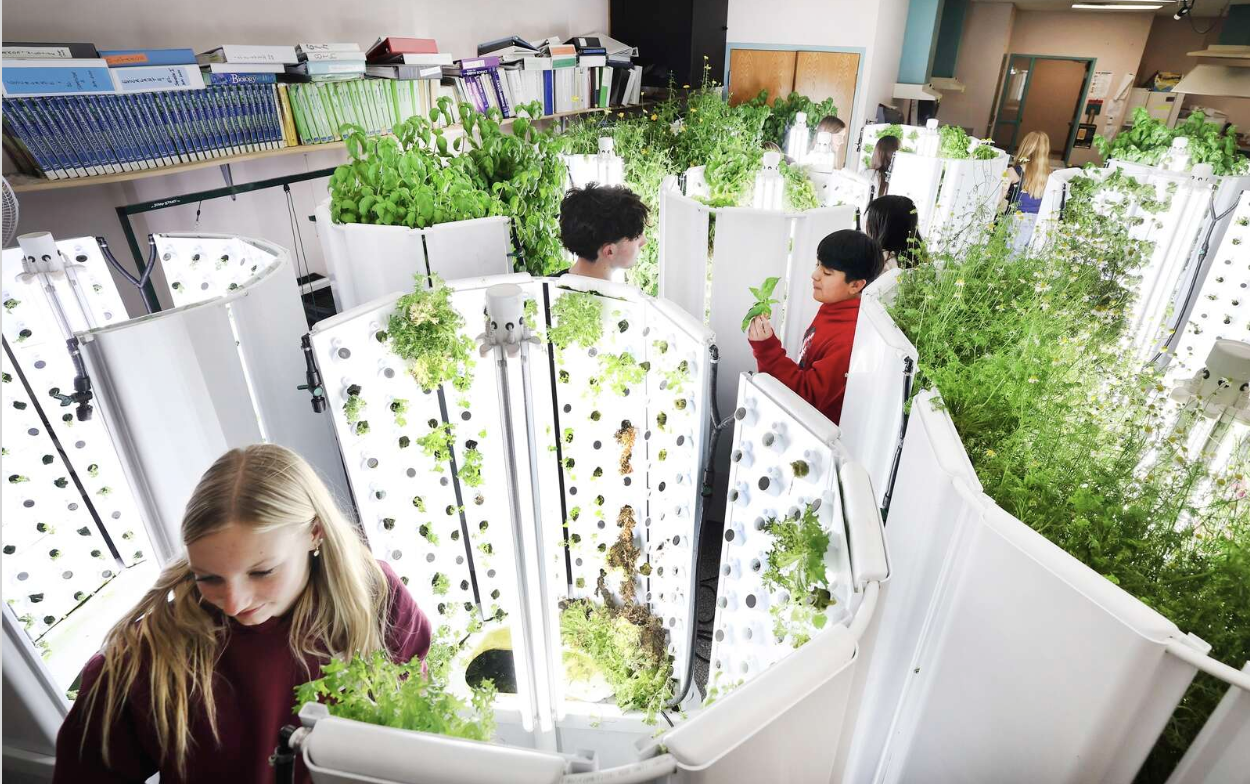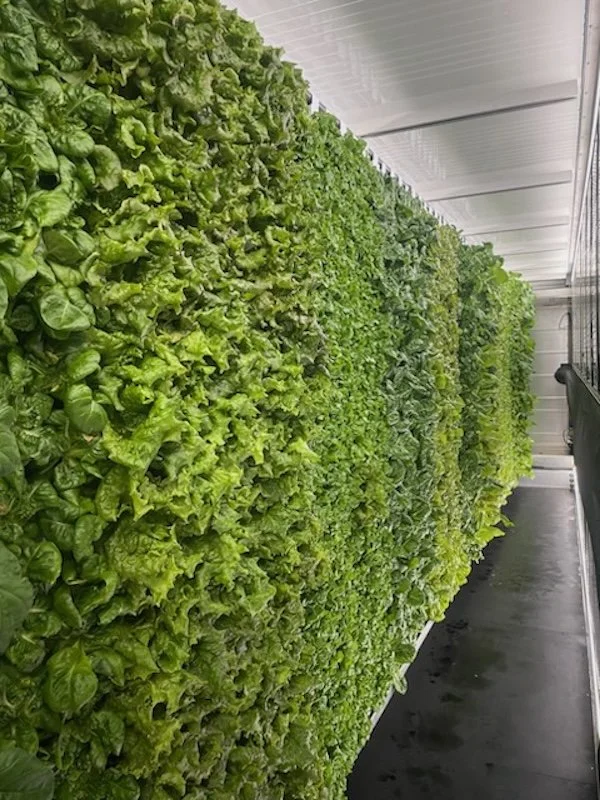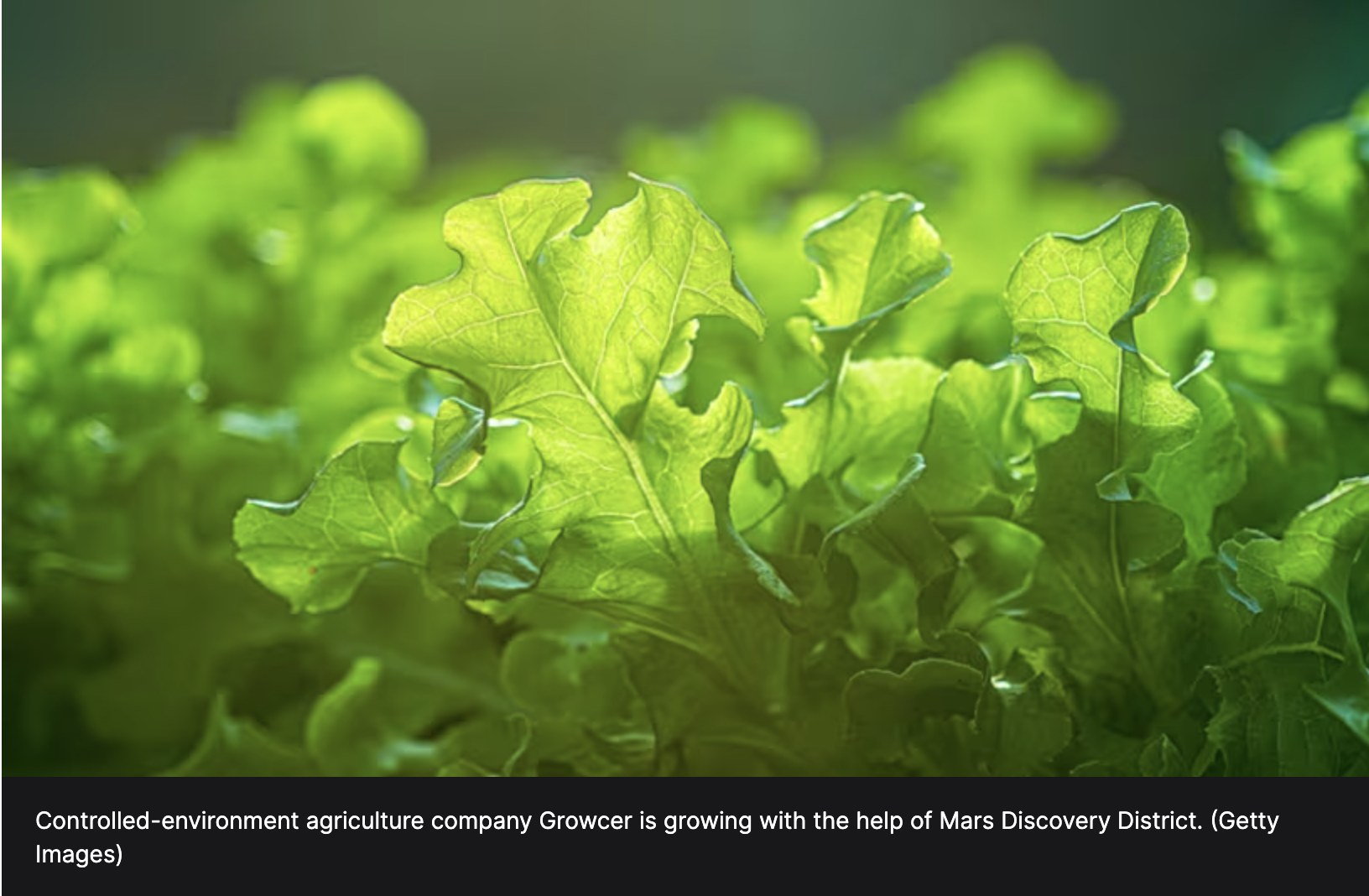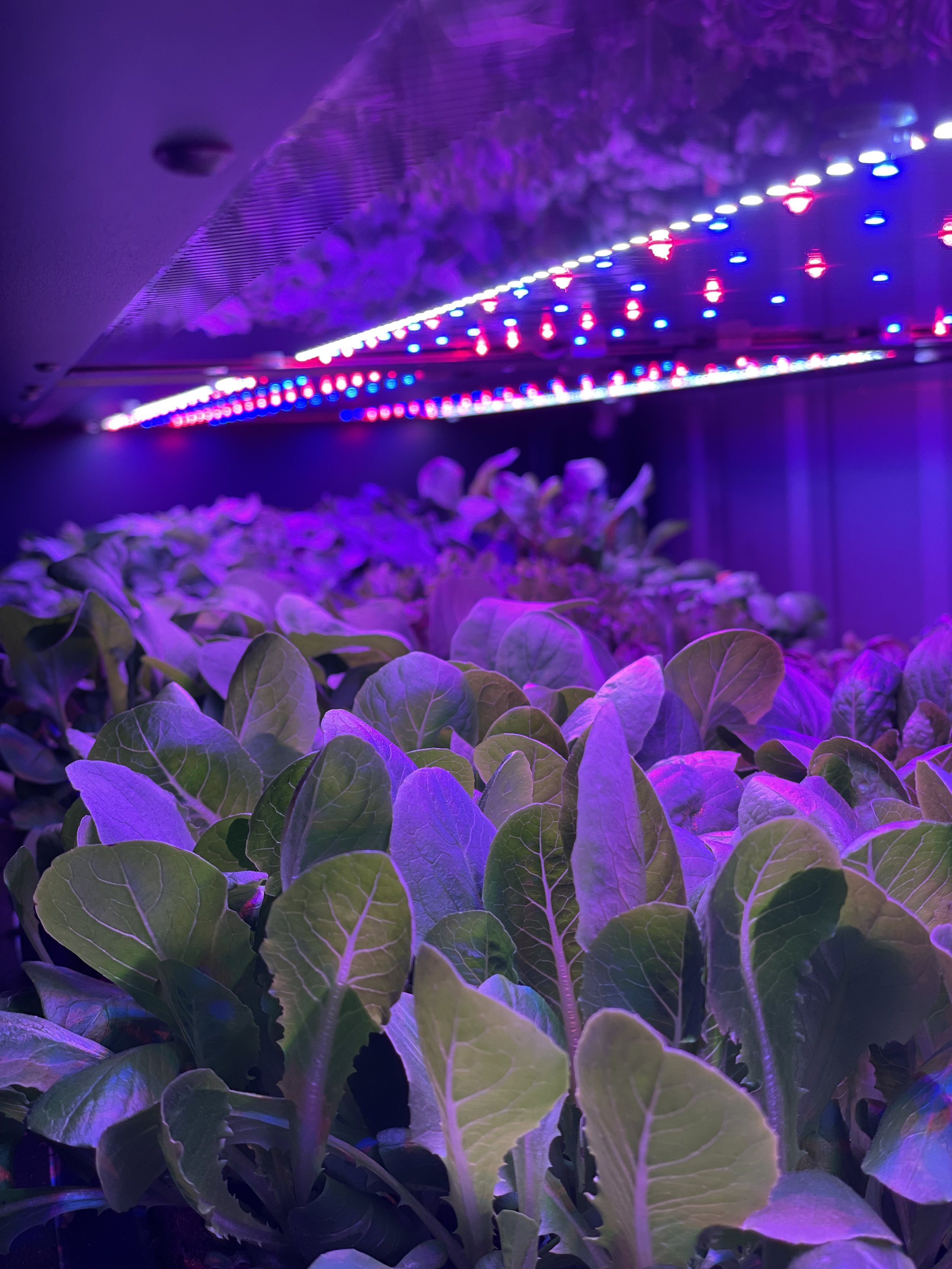
News About Farming in Shipping Containers & Limited Indoor Spaces
Greens Grow in Circles - NASA Funded Research Inspires Home Indoor Farming Tech
NASA has been a pioneer in the field of indoor farming for decades and collaborates often with outside institutions.
For more than 40 years, Purdue University in Indiana has received funding from and collaborated with NASA’s Ames Research Center in Silicon Valley, California, as part of the agency’s Specialized Center of Research and Training program to explore methods of growing plants under electric light.
USA - WYOMING - Lettuce to Lunch Line at Lander Valley High
(Lander, WY) – Students in a freshman year agriculture class at Lander Valley High School harvested over 30 pounds of lettuce this week after growing it entirely inside their classroom.
The greens were delivered to the cafeteria and served in school lunches for teachers and students the following day.
USA - OHIO: Lebanon Schools' New Hydroponic Garden Brings Fresh Vegetables and Opportunities
The school’s child nutrition team recently started experimenting with two vertical hydroponic growing systems.
"It started as like kind of a pipe dream idea over the summer," said the school's child nutrition coordinator, Megan Grippa. "We had someone from Fork Farms, where we purchased our hydroponic farms from, speak at my conference and I heard a little bit of her speech and was kind of inspired."
USA - MICHIGAN: MSU Research Targets Profitability and Growth in Controlled Environment Agriculture
Michigan State University researchers are developing more financial resources to help controlled environment growers succeed.
Horticulture economics doctoral student Megan Burritt tells Brownfield, “Everybody is considering, as you’re trying to grow your agricultural commodity entity, should I buy a new tractor or should I invest in a new greenhouse?”
Pilot Study Links Indoor Vegetable Gardening to Reduced Depression in Cancer Patients
A new pilot study suggests that engaging in indoor hydroponic gardening can improve mental well-being and quality of life for adults undergoing cancer treatment.
The findings indicate that this accessible form of nature-based intervention offers a practical strategy for reducing depression and boosting emotional functioning in patients.
Green Our Planet Partners With Fork Farms to Transform STEM Education Through Hydroponics in Schools Nationwide
Green Our Planet, the nation’s largest nonprofit provider of school garden and hydroponics STEM programs announced a major national partnership with Fork Farms today, the Wisconsin-based impact-tech company redefining indoor agriculture. Together, the two organizations will expand access to hydroponic laboratories and hands-on STEM learning for students across the United States.
USA: Penn State University - New Webinar Series Teaches Basics of Hydroponic Production
Penn State Extension will offer a five-week webinar series titled Basics of Hydroponic Production every Wednesday from February 18 through March 18, 2026, from 12:30 to 1:30 p.m. EST. This lunchtime series is designed to introduce participants to the core principles of growing vegetables without soil. Key topics include hydroponic systems, lighting, climate control, nutrient and water quality management, insect and disease management, microgreens, and food safety.
USA - MISSISSIPPI - VIDEO: Aquaponics Education Exhibit Unveils at Lynn Meadows Discovery Center
A recycled shipping container now serves as a mini-ecosystem, teaching kids about aquaponics — a system of aquaculture which involves raising both plants and fish together. The fish provide nutrients to the plants, and the plants provide clean water for the fish.
Kaben Smallwood, CEO of Symbiotic Aquatics and the designer of the exhibit, says the process allows farmers to take their minds off their tools and keep them on their products.
USA - ARKANSAS - VIDEO: Jacksonville Students Grow Food and Community Through Hydroponic Program, JR MANRRS Club
At Jacksonville Lighthouse Charter School, students are learning science beyond the textbook by growing plants indoors through a student-led hydroponic program, JR MANRRS Club, or Jr. Minorities in Agriculture, Natural Resources and Related Sciences Club, which also gives back to the community.
The soil-free growing system allows students to cultivate vegetables using water, light and carefully monitored nutrients.
USA - MISSISSIPPI: USM and Lynn Meadows Discovery Center to Celebrate Ribbon Cutting of New Aquaponics Education Exhibit
Aquaponics in Action Exhibit Brings Sustainable Food Systems Education to Families
As part of MAD’s commitment to community engagement and workforce development, Southern Miss, Symbiotic LLC, the GULF BLUE Initiative and LMDC have partnered to create a public aquaponics education exhibit housed in a retrofitted shipping container.
Luya Tech Inc. Unveils AI-Powered Microgreens Nutrition System At CES 2026
Luya Tech Inc., a Princeton-based artificial intelligence technology company, announced the launch of what it describes as the world’s first AI-powered microgreens nutrition system at CES 2026.
The system is designed to enable households to grow fresh microgreens at home with minimal effort while focusing on nutritional outcomes.
VIDEO - NOVA SCOTIA: Summer Street Set To Open The Farm in New Glasgow
Summer Street is an organization supporting people with diverse abilities and is participant led. This project to start growing local food was years in the making with goals to:
1) Grow fresh local food to eat
2) Create meaningful employment
3) Grow food to give back to the community
USA - OHIO: Hydroponics Program Growing at Buckeye Local High School
Buckeye Local Jr./Sr. High School is taking the term “farm to table” to new heights by establishing its own sustainable venture to supply freshly grown produce through its new hydroponics system.
The BLHS FFA and junior high building are housing three commercial-grade hydroponics towers that were acquired in November with a $35,000 Grow Ohio Grant from the Ohio Department of Education and Workforce.
How Elon Musk's Brother Became an Urban "Farmer" and Leads Projects Aimed at Transforming Schools, Cities, and Food Production
Kimbal Musk's journey encompasses school gardens, vertical farms in shipping containers, and educational projects that advocate for local cultivation, healthy consumption, and agriculture as a tool for continuous social transformation.
While Elon Musk dominates global debates about technology and transportation, his younger brother, Kimbal Musk, follows a different path because he sees food as a way to have a direct social impact.
VIDEO: Barbados Government's First Ever indoor Vertical Farming Pilot Coming Online
Objective: To reduce Barbados' 85% dependence on imported food, create a new generation of climate-resilient farmers, and provide a consistent, high-quality local produce supply that is protected from extreme weather events.
The installation uses modular, containerized vertical farms (three units total: two for production, one for nursery/support) equipped with aeroponic systems and energy-efficient LED lighting.
USA - COLORADO: Escalante Middle School Students Learn Value of Agriculture in Greenhouse Class
Escalante Middle School students are running a warm and flourishing hydroponic indoor oasis for their hand-grown plants and herbs this winter – and their bounty is stocking the school cafeteria and shelves at Durango Natural Foods.
USA - MASSACHUSETTS: Watertown Public Schools Awarded State Grant to Support Farm-to-School Program
The state recently awarded the Watertown Schools a grant to run its farm-to-school program, including its Freight Farm.
Watertown Public Schools has received more than $80,000 in state grant funding to continue its farm-to-school efforts, expanding learning opportunities for Watertown’s students while also increasing local food production.
‘Unit Economics Do Not Work Everywhere,’ Growcer CEO on Making Indoor Ag Profitable
Growcer is taking a prudent approach to growth and capital, as the Canadian indoor ag company scales up with the help of Mars Discovery District


